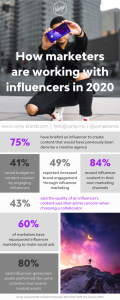Meta’s announcement on Tuesday that it planned to lay off another 10,000 workers and not fill 5,000 job openings rightfully captured most of the attention from Wall Street and onlookers. But buried in Mark Zuckerberg’s latest “year of efficiency” announcement was news of what seems to be a notable policy shift for the company.
Meta, it appears, is finally entering the battle royale surrounding artificial intelligence, making it a high-profile focus for the future.
“I believe that we are working on some of the most transformative technology our industry has ever seen,” Zuckerberg wrote in his note to employees. “Our single largest investment is in advancing AI and building it into every one of our products. We have the infrastructure to do this at unprecedented scale and I think the experiences it enables will be amazing.”
Meta’s recent focus has been on the metaverse, but excitement around that technology has been fading. While Meta is shifting to an AI focus, Zuckerberg emphasized he’s not giving up on his pet project. “Our leading work building the metaverse and shaping the next generation of computing platforms also remains central to defining the future of social connection,” he wrote.
The shift to AI is actually a return to the past for Meta, which unveiled an AI system dubbed “Galactica” last year before the world had ever heard of ChatGPT. That AI lasted all of three days, due to rampant misinformation, though (including, famously, declaring that Steve Jobs ran Silicon Valley and discussing the history of bears in space).
Just last month, Zuckerberg tried again, introducing Meta’s most recent take on generative AI, called LLaMA. The company, he said, was committed to an “open model of research” and the AI would be open to the research community.
Three days later, he gave a little more insight into LLaMA, saying Meta had pooled all of its generative AI teams into a single group to focus on building the technology into Meta’s products.
“In the short term, we’ll focus on building creative and expressive tools,” he wrote. “Over the longer term, we’ll focus on developing AI personas that can help people in a variety of ways. We’re exploring experiences with text (like chat in WhatsApp and Messenger), with images (like creative Instagram filters and ad formats), and with video and multi-modal experiences.”
Those longer-term goals, he admitted, are still a long way from reality.
What’s unclear from Zuckerberg’s post is exactly how much Meta is spending in this AI arms race. The company famously was shelling out $1 billion per month on its metaverse plans. Whether spending on that will be reduced was not addressed either.
Meta enters an increasingly crowded AI marketplace. OpenAI this week unveiled the next evolution of its well-known ChatGPT chatbot—and Microsoft, on Wednesday, confirmed Bing has been using GPT-4 for the past five weeks. Baidu debuted its AI, dubbed Ernie, on Thursday, but did not show a live demo of the chatbot.
That might be in reaction to Google’s introduction of its Bard, which famously erred during its live demo, causing the company’s stock to sink.
While AI has seen a massive amount of private investment and patent filings in the past year, the technology is still a considerable way from being ready for prime time. While improvements have been made rapidly, consumers are wary of the technology’s “hallucinations,” which have led to everything from gaslighting to giving disturbing advice to teenagers.

At the same time, Congress has shown a sudden interest in the AI world, with several proposed regulations. Given that Meta and other tech giants are already in the crosshairs of the Federal Trade Commission, that could make efforts by the company to establish a leadership position in AI more challenging.
(16)







